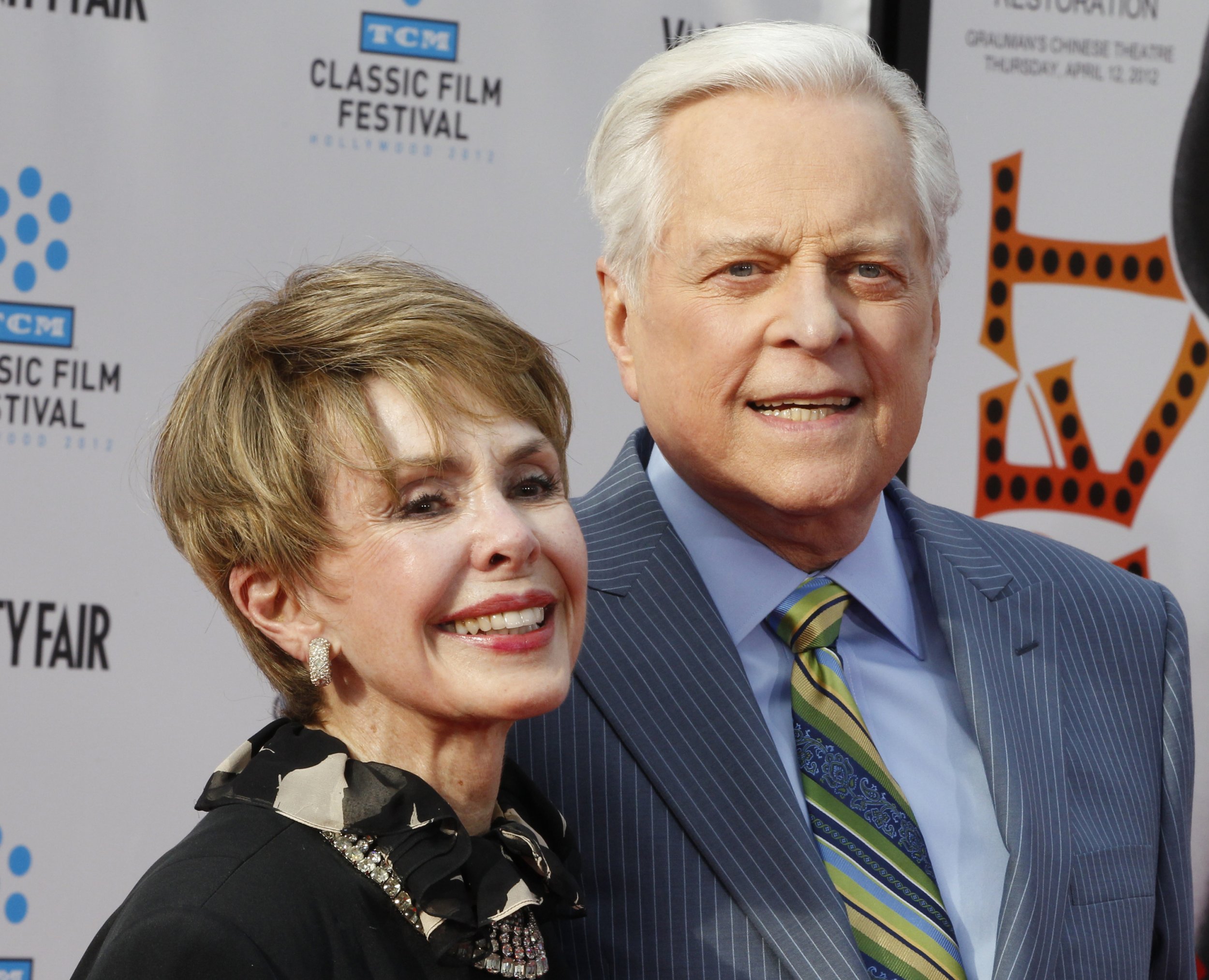
Last month, I took an extended break from two entities that for months had proved corrosive and toxic to my well-being: the New York City winter and cable news. I took a sabbatical from darkness, heading west for sunshine, Mom and an impromptu film festival.
Goodbye to the gray of Manhattan and the white noise of political squabbles. Hello to the cerulean skies of the Sonoran Desert and the (mostly) black and white of Turner Classic Movies. Farewell to Jake Tapper and Sean Hannity and Rachel Maddow. A hearty welcome to Robert Mitchum and Cary Grant and Janet Leigh.
In the past year, I, like so many of you, have spent an inordinate amount of hours ingesting the bad carbs of cable news. A steady diet of CNN and Fox News and MSNBC had carved out a giant pit in my stomach—and my soul. How many times can one watch Maddow open a show with a slowly building bombshell that, upon detonation, leaves nothing more than a puff of smoke? When you find that you have spent more hours in a given month talking back to CNN's Jeffrey Lord than you have communicating with all of your relatives, it may be time for a change.
Thus, on an early March weekend when the temperature in Central Park dipped below 20 degrees and the president's approval rating below 40 percent, I engineered my escape. I hopped a flight to my ancestral homeland of Phoenix, where my wonderful, widowed Italian-American mother always has a spare bedroom and a full refrigerator. "I've got two full trays of lasagna in the fridge," Phyllis announced, which is her way of saying, "Phone when your flight lands."
Related: How 'Young Frankenstein' became a monster hit
Changes in latitudes are easy and swift. Changes in attitudes are more glacial. I had last visited my mom's retirement community, which my late father affectionately referred to, in a nod to Seinfeld, as Del Boca Vista West, in October. At the time there were almost as many front lawns littered with "Trump/Pence" signs as there were undocumented Mexican laborers doing yard work on those lawns. The election was mere weeks away, but with one television and two people of widely disparate political views—at least for the 2016 election—it was nearly impossible to remain informed without someone becoming unhinged.
My mom is a secular saint. Cleanliness is next to godliness for Phyllis, though she'd probably reverse the rankings. She mails birthday cards to people she doesn't even like. She is as selfless and generous and thoughtful as anyone you will ever come across—it skips a generation, I'm told—and yet last autumn we briefly became bitter rivals.
Last October, it was impossible for us to find a cable news channel that did not leave one of us fuming. If we watched MSNBC or CNN, my mom would demurely retreat to her bedroom. If we tuned in to Fox News, I would discreetly stick my head in the oven. Frequently, and for a palliative effect, we tuned in to her favorite show, Blue Bloods, in which Tom Selleck plays a New York police commissioner whose surname just happens to be Reagan. Those folks in CBS's programming department are not idiots.
This time around, without ever mentioning it and because, for all intents and purposes, the battle was over, Phyllis and I avoided cable news channels. Completely. Instead, we found a demilitarized zone that crossed both generational and political borders: Turner Classic Movies. We traded in Steve Bannon for Touch of Evil. Sean Spicer for The Quiet Man. Donald Trump for A Face in the Crowd. Maybe it was the genial spirit of TCM host Robert Osborne, who died on March 6, guiding us. Perhaps it was nothing more than sweet surrender.
We binged, embarking on a silver-screen bender that would have humbled Leonard Maltin. We spent our nights watching a trilogy of films with "Night" in their titles: The Night of the Iguana, starring Richard Burton; The Night of the Hunter, starring Robert Mitchum; and Night Moves, a wonderfully underrated 1975 film starring Gene Hackman that is The Rockford Files meets Against All Odds. (Film buff note: Tippi Hedren's daughter, Melanie Griffith, goes topless as a 16-year-old; it was the '70s.)
We watched both Psycho and The Birds and came to the conclusion that perhaps great director Alfred Hitchcock had some unresolved Oedipal issues (there are few things more awkward, as a single adult male, than watching Psycho with your mom). We watched Touch of Evil too, another film in which Leigh finds herself all alone and in peril, this time in a remote desert motel room. "Mom," I wondered, "didn't Janet Leigh have MileagePlus points?"
With the older films, such as Holiday starring Cary Grant and Katharine Hepburn, or Double Indemnity, with Barbara Stanwyck and Fred MacMurray, I deferred to Mom's memory. At least for a time. If the film was released before 1950, inevitably my mom would spot a handsome actor on screen and ask, "Isn't that Tommy Drake?" Not being overly familiar with character actors from that era, I'd reply that I didn't know. It became a bit.
"Isn't that Tommy Drake?" Phyllis asked as we watched Holiday.
After a brief Google search, I replied, "No, mom, that's Lew Ayres."
This happened a number of times, and I never did find a Tommy Drake. Somewhere, he is waiting to be discovered.
The weeks, and our unofficial film festival, flew by in sun and splendor. During NCAA March Madness, we happily watched TCM's "March Malice," a week devoted to film noir. A friend phoned during the third week of my one-week sabbatical. "Are you ever coming back?" he asked. "I'm in the Going After Cacciato of spring breaks," I replied.
Meanwhile, a sense of peace and calm—which I had not known since before our president declared, "When Mexico sends its people, they're not sending their best"—began to wash over me. Had I, somewhat like Dr. Strangelove, learned to stop worrying and love the Don? Not exactly. Instead, through the plots and characters of classic films and the commercial-free programming of TCM, I'd come to realize how much more therapeutic it is to view current events through the prism of cinema.
Mexico's not sending their best? Then I suggest a triple feature of The Night of the Iguana (a defrocked Virginia minister), Touch of Evil (a corrupt and murderous border town American police chief) and The Treasure of the Sierra Madre (down-and-out Yankee treasure hunters who thief and kill) to see what America has sent Mexico. Hell, you can even flip over to AMC and note that The Shawshank Redemption ends with an escaped convict and a convicted murderer from Maine on the beach in Zihuatanejo.
Concerned that dark-skinned people are after your job? Try Ava Gardner as a mulatto in Showboat or Charlton Heston as a Mexican-American in Touch of Evil. Obsessing about travel restrictions related to Muslim countries? Why watch The Situation Room With Wolf Blitzer when you can watch Casablanca with Humphrey Bogart?
The issues of today, time and again, have already been examined in the plots of yesteryear. Are you curious to see if a lone newspaperman can redress a societal injustice? Watch Jimmy Stewart in Call Northside 777. Do you wonder how you could have so wildly misread so many fellow Americans whom you thought you knew, and are you consumed with spreading the truth about what's really happening? You won't find a more apt allegory than the original version of Invasion of the Body Snatchers, from 1956.
There's a scene in that film that, as my mom and I watched, made me sit upright in my eponymous La-Z-Boy. Here's protagonist Dr. Miles Bennell (Kevin McCarthy), explaining to a colleague what he has been witnessing but is yet unable to explain: "In my practice, I've seen how people have allowed their humanity to drain away. Only it happened slowly instead of all at once. They didn't seem to mind. All of us, a little bit, we harden our hearts, grow callous. Only when we have to fight to stay human do we realize how precious it is to us, how dear."
And it finally dawned on me, not unlike how the reveal of Soylent Green ("Soylent Green is people!") dawns on detective Frank Thorn (Heston). Or how the reveal of Planet of the Apes ("You blew it up!") dawns on Taylor (also, Heston). The issues and the answers to today's political disruption were hiding in plain sight on the silver screen.
My mom and I had fled from cable news, as the Bowden family in the 1962 version of Cape Fear flees from Robert Mitchum or the Harper kids in The Night of the Hunter flee from Robert Mitchum (someone was always fleeing Robert Mitchum). We thought we had found a sanctuary in the studio releases of MGM and Warner Bros. Instead, what we found was enlightenment, delivered not with bickering contributors and sound bites but with some of the greatest stories of the past century.
Hooray for Hollywood!
Uncommon Knowledge
Newsweek is committed to challenging conventional wisdom and finding connections in the search for common ground.
Newsweek is committed to challenging conventional wisdom and finding connections in the search for common ground.
About the writer
John Walters is a writer and author, primarily of sports. He worked at Sports Illustrated for 15 years, and also ... Read more
To read how Newsweek uses AI as a newsroom tool, Click here.








